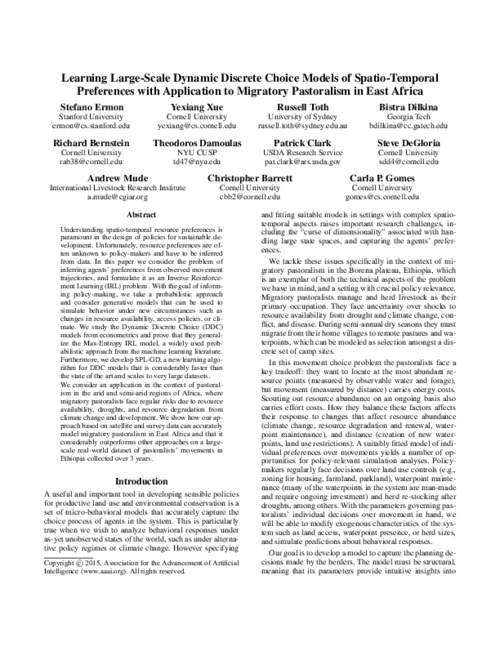Learning Large-Scale Dynamic Discrete Choice Models of Spatio-Temporal Preferences with Application to Migratory Pastoralism in East Africa
Abstract
Understanding spatio-temporal resource preferences is
paramount in the design of policies for sustainable development. Unfortunately, resource preferences are often unknown to policy-makers and have to be inferred
from data. In this paper we consider the problem of
inferring agents’ preferences from observed movement
trajectories, and formulate it as an Inverse Reinforcement Learning (IRL) problem . With the goal of informing policy-making, we take a probabilistic approach
and consider generative models that can be used to
simulate behavior under new circumstances such as
changes in resource availability, access policies, or climate. We study the Dynamic Discrete Choice (DDC)
models from econometrics and prove that they generalize the Max-Entropy IRL model, a widely used probabilistic approach from the machine learning literature.
Furthermore, we develop SPL-GD, a new learning algorithm for DDC models that is considerably faster than
the state of the art and scales to very large datasets.
We consider an application in the context of pastoralism in the arid and semi-arid regions of Africa, where
migratory pastoralists face regular risks due to resource
availability, droughts, and resource degradation from
climate change and development. We show how our approach based on satellite and survey data can accurately
model migratory pastoralism in East Africa and that it
considerably outperforms other approaches on a largescale real-world dataset of pastoralists’ movements in
Ethiopia collected over 3 years

